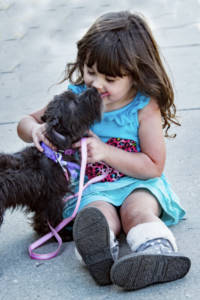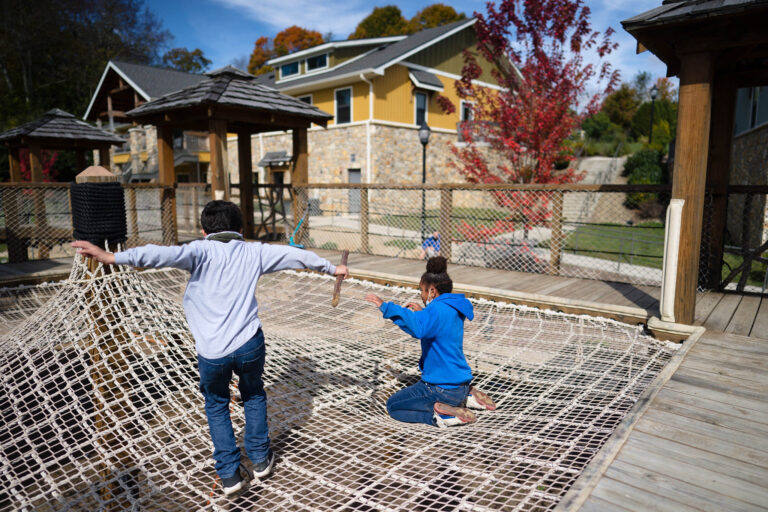May is Foster Care Awareness Month, but why should you care?
Because in the United States a child is removed from their home and placed into foster care every two minutes. The trauma of childhood abuse and neglect is the single greatest public health crisis facing children in America. Over 20,000 children age out of foster care without a permanent family. And because right now, there are more than 12,000 kids in foster care in North Carolina.
Statistics can feel grim and sound alarming. They may make us shut down and turn the other way. The scope and scale of child welfare in the U.S. and more specifically, North Carolina, may be too difficult to grasp. But once we personalize the issue, we inevitably feel sparked to act. The primary question becomes evident. What, if anything, can I do?
What can I do?
One way is to become a responsive and engaged mentor. Because we believe childhood trauma can be healed, healthy attachments/behaviors can be formed with expert interventions and supports. Being a responsive trauma-informed adult starts with making a child’s needs a priority. Create a positive environment, both physically and emotionally, that enables a child to relate to others and safely explore the world around them.

For children, responsive relationships with adults have a multiplying benefit. They promote healthy brain development and provide the buffering protection they need to cope and process challenging experiences. These relationships help them learn to heal outside of their toxic stress response. Let’s start by looking at why it is so important for children to have a responsive adult in their lives.
What difference will it really make?
 Starting at birth, our ability to thrive is affected by our ongoing relationships and the degree in which those relationships are supportive. Experiencing significant adversity combined with a lack of responsive and caring adult relationships early in life can mold our body’s systems to be more susceptible to stressors throughout life. In other words, without a positive mentored emotional roadmap, triggered perceptions and responses can shift to become the rule rather than the exception. This susceptibility leads to long-term negative consequences for a person’s health. This includes physical and emotional health, educational achievement, economic success, and social relationships. We now know that the more adverse childhood experiences a child encounters the more emotionally and behaviorally dysregulated they will be down the road.
Starting at birth, our ability to thrive is affected by our ongoing relationships and the degree in which those relationships are supportive. Experiencing significant adversity combined with a lack of responsive and caring adult relationships early in life can mold our body’s systems to be more susceptible to stressors throughout life. In other words, without a positive mentored emotional roadmap, triggered perceptions and responses can shift to become the rule rather than the exception. This susceptibility leads to long-term negative consequences for a person’s health. This includes physical and emotional health, educational achievement, economic success, and social relationships. We now know that the more adverse childhood experiences a child encounters the more emotionally and behaviorally dysregulated they will be down the road.
Each week, dozens of children with complex behavioral, physical, and mental needs enter the North Carolina foster care system. Our expressed goal is to provide immediate protection via a safe and supportive, adult responsive, environment. The number of children with these needs far exceeds the spaces and services currently available. This is why we need you, the Crossnore community. And not only to become responsive parents. But also to also promote and give voice to those within your extended communities that loving and supporting a child in need is simply the right thing to do.
Those Who’ve Answered the Call
Take for example the Crane family, who have two boys of their own and thought about caring for another little boy for years. They decided to take the plunge, went through the training process, and ended up fostering an infant girl. Mrs. Crane shared that even though they ended up with the opposite age/gender “they couldn’t imagine their lives any other way.” Or, take the Johnson family who cared for a little boy suffering with significant medical neglect. They understood the trauma he had experienced. And they were able to meet him in his ‘space of physical and mental needs’ to provide personalized, unconditional love and care. The experience, though challenging, was incredibly rewarding to the Johnsons. So much so that two years later, they grew their family by fostering to adopt the little boy’s two siblings.
What if I can’t foster?
We don’t all need to become foster parents but we all need to promote the noble ideal that fostering is an essential act of kindness. To this end, we need to take coordinated actions so that appropriate support for children and their families are available when they need it. Take for example the thoughtful acts of Pastor EW Hayes with Grace Ministries of Deliverance. He has lined up local barbers to provide monthly haircuts to children in our care. There’s also Bob Reddick, a member of Mount Tabor UMC, who has offered to make small repairs to the homes of foster families.
Others in our community have cooked a meal for a foster family. They’ve helped with yard work. They’ve taken the time and space to ask ‘How can I help you today?’ These small acts of kindness can prove invaluable to foster parents and their children.
What else can I do outside of foster care awareness month?
Another option is to engage in volunteer-based events/actions raising and collecting donations that can benefit children in care. Like The Living Word Fellowship Church who collects school supplies in the fall. They also encourage our foster families to utilize their food and clothing pantries. Or again, the Craine family who opened the first foster closet in Transylvania County late last year. So far, 15 families have utilized the closet as they were preparing and accepting their first placements.
Advocating at the local and state levels for policy change and funding for social services might be your calling. Take the Heath family, foster parents from Winston Salem, who recently traveled to Raleigh to meet with legislators to discuss the ways and methods our current foster care system can be improved. In foster care awareness month and all year round, there are countless ways in which we can all help, in whatever way suits your current circumstances.
All children deserve safe and supportive communities. Even more so if they come from a background of trauma, neglect, and abuse. Our state’s children are sacred. And during this foster care awareness month, we at Crossnore believe you have the power and influence to protect, support, and respond to the most vulnerable among us. To quote the author Rachel Carson, “If a child is to keep alive his inborn sense of wonder…he needs the companionship of at least one adult who can share it, rediscovering with him the job, excitement and mystery of the world we live in.”




